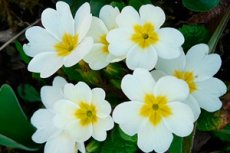Medical expert of the article
New publications
Preparations
Feather blossom for coughing bronchitis
Last reviewed: 04.07.2025

All iLive content is medically reviewed or fact checked to ensure as much factual accuracy as possible.
We have strict sourcing guidelines and only link to reputable media sites, academic research institutions and, whenever possible, medically peer reviewed studies. Note that the numbers in parentheses ([1], [2], etc.) are clickable links to these studies.
If you feel that any of our content is inaccurate, out-of-date, or otherwise questionable, please select it and press Ctrl + Enter.

Dosing and administration
For colds and bronchitis, recipes based on the leaves, roots and rhizomes of the plant are used.
Leaves: 3 tablespoons of dry crushed raw material are poured with half a liter of boiling water and infused for 1-2 hours. It is best to make an infusion in a thermos and drink it throughout the day in small portions.
2 tablespoons of dry leaves pour a glass of water and boil for twenty minutes. Take the medicine 1 tablespoon 4 times a day.
Roots and rhizomes: Take 1 tbsp of crushed raw material, pour 1 tbsp of boiling water and simmer in a water bath for 30 minutes, having previously covered it with a lid so that the water does not evaporate. Cool the composition, filter it and add warm boiled water to it so that the glass with the medicine is full. Drink the prepared dose during the day in 3 times.
Pour 2 cups of boiling water over 2 tablespoons of raw material and leave for twenty minutes. Take half a glass during the day.
Contraindications
Primrose is a non-poisonous plant and does not cause severe allergic reactions if the dosage is observed. It is not advisable to take it only for those who have hypersensitivity to this herb and expectant mothers. During pregnancy, the herb can provoke uterine contractions and miscarriage. Caution should also be exercised by people with ulcerative diseases.
Side effects primrose
This phenomenon is rare and occurs in people prone to allergic reactions. But allergy to grass usually manifests itself if the indicated doses are exceeded, and then its only symptom will be skin itching.
 [ 11 ]
[ 11 ]
Storage conditions
Roots and rhizomes should be harvested in the spring, before the plant begins to bloom, or in the autumn, when it has finished blooming. Leaves and flowers should be harvested in the spring-summer period (during the flowering period of the primrose).
It is recommended to store the roots in cloth bags (linen or cotton), and it is better to place the flowers and leaves in glass jars and close them with lids so that they do not absorb moisture. The shelf life of the roots, flowers and leaves of the primrose is 2 years.
 [ 14 ]
[ 14 ]
Attention!
To simplify the perception of information, this instruction for use of the drug "Feather blossom for coughing bronchitis" translated and presented in a special form on the basis of the official instructions for medical use of the drug. Before use read the annotation that came directly to medicines.
Description provided for informational purposes and is not a guide to self-healing. The need for this drug, the purpose of the treatment regimen, methods and dose of the drug is determined solely by the attending physician. Self-medication is dangerous for your health.

